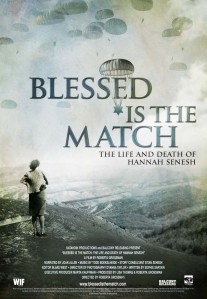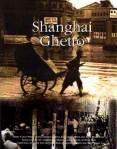 The Book Thief (2013) is a beautiful if flawed adaptation of the 2005 young adult novel with the same title. It looks at life in Nazi Germany through the eyes of a young German girl. Liesel Meminger (Sophie Nélisse) has lost her mother as the film begins; her mother is a communist, presumably taken away to a concentration camp. Liesel is adopted by the working-class Hubermanns (played by Geoffrey Rush and Emily Watson) who become progressively poorer as the war drags on. Her adopted father, Hans, is in trouble for not joining the Nazi Party, and he has a penchant for sticking up for the underdog. Rosa, his wife, appears to be a stingier sort of person, but shows her true colors when the son of an old friend of Hans’, a Jew, appears starving at their door.
The Book Thief (2013) is a beautiful if flawed adaptation of the 2005 young adult novel with the same title. It looks at life in Nazi Germany through the eyes of a young German girl. Liesel Meminger (Sophie Nélisse) has lost her mother as the film begins; her mother is a communist, presumably taken away to a concentration camp. Liesel is adopted by the working-class Hubermanns (played by Geoffrey Rush and Emily Watson) who become progressively poorer as the war drags on. Her adopted father, Hans, is in trouble for not joining the Nazi Party, and he has a penchant for sticking up for the underdog. Rosa, his wife, appears to be a stingier sort of person, but shows her true colors when the son of an old friend of Hans’, a Jew, appears starving at their door.
The film follows this threesome through the war, and it surprises in ways that I will not spoil with this commentary. There is nothing in the film I would not show a middle-schooler. (For more about the film’s suitability for children, see its entry at www.kids-in-mind.com.)
The book and film take their name from Liesel, who takes a book she cannot even read at the beginning of the film, and who continually acquires books through questionable or dangerous means.
Commentary
The Book Thief offers us a chance to ponder what was going on with ordinary Germans during the Holocaust years. It takes us inside the home of a couple who feel sympathy for communists and Jews, but who are poorly equipped to take a heroic stand against Nazism. It takes us into the schoolyard, where young Liesel faces the full range of her neighbors’ loyalties and inclinations, from Franz, an enthusiastic Nazi and bully, to Rudy, who idolizes Jesse Owens and cannot understand why he must keep that enthusiasm quiet. It introduces us to the neighbors, some who disapprove of the Hubermanns’ unwillingness to join the Nazi Party and others who seem to silently agree with them that the world has lost its mind.
In this setting, every small act may have outsize consequences. I understand that some reviewers found the film “boring,” but I found the film to have a growing, needling tension. First there is the ordinary calm of a schoolroom, but with Nazi flags and Hitler’s photo, there’s an edge to it. Then with each plot development the Hubermann family seems more vulnerable, between Han’s penchant for showing his humanity at the wrong moment to Liesel’s dangerous book acquisitions. Since I had not read the book, I was on the edge of my seat every moment, afraid that they were about to be exposed.
I understand that the role of Max, the Jew in the basement, is much smaller in the film than in the book. He is still a compelling figure, a gifted teacher who encourages Liesel’s passion for words while trapped in a cold, damp basement.
The Book Thief is a film about transcendence: the power of love to transcend a horrible situation and about the power of a good narrative to transcend an ugly present. In bare outline, Liesel’s childhood was horrible, one terrible loss after another. As told in the film, however, she is very much a loved child and able to survive her losses partly because of her passion for a good story.
Questions for Discussion
1. Given her motivation (and just what was that motivation?) what did you think of Liesel’s borrowing or stealing books from the Bürgermeister’s house? What was she risking by taking the books? Was it worth it?
2. What was your initial impression of Rosa? Did your impression change, and if so, at what point in the story? Why?
3. What books would you be willing to steal, if it were the only way to get them? Under what circumstances would you consider it justifiable to steal books?
4. In this film, a number of “ordinary people” face ethical challenges. What would you do (or have you done) in these situations:
- Someone hungry and desperate asks you for help. You fear they may bring disaster on your home.
- You desperately want something that belongs to someone else.
- Someone you believe to be innocent is handled violently by police.
- Someone you love has a secret, and they won’t tell you what it is.
5. Is it true that love can transcend even a situation like Liesel’s, or is this film ultimately foolish and sentimental for suggesting it?







 Shanghai Ghetto (2002)
Shanghai Ghetto (2002)  Everything is Illuminated
Everything is Illuminated Au Revoir, Les Enfants
Au Revoir, Les Enfants